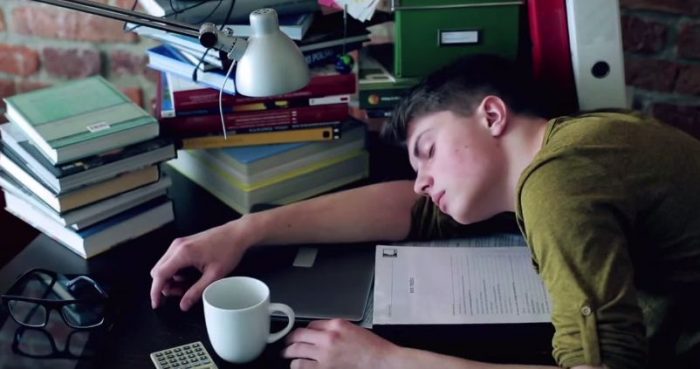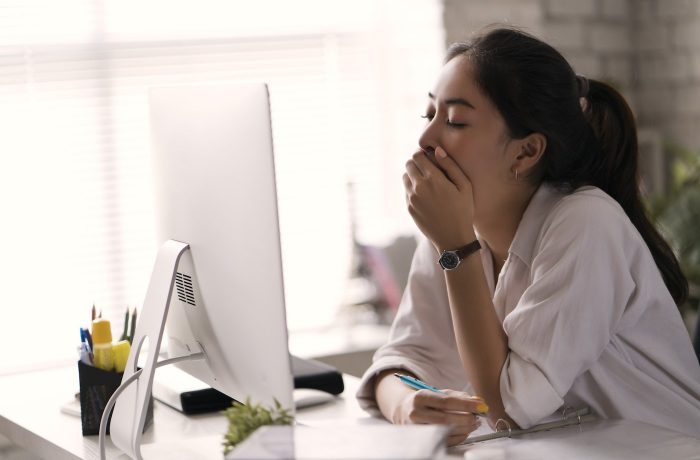Staying awake is so easy, all you need is 5 cups of coffee. Yes, drinking more coffee is sure to keep you awake, but you could also have a heart attack. Overcoming sleepiness can be challenging without the use of harmful stimuli.

So, what are the healthy and natural ways to stay awake when you should?
Cooling the room
Warm environments accelerate mental fatigue because of the high temperatures aid relaxation. If you need to stay awake to do something, turn on the air conditioner to cool down the room and feel fresh.
Shower with cold water
Take a cold bath (as often as you can) or spray a little cold water on your face and the pulse area on your wrists. Drinking a glass of ice water can also wake you up.
Fasting at mealtime
The human body expends a great deal of energy during the digestive process. This can cause tiredness, feelings of sleepiness and the urge to sleep. Fasting is a great way to avoid this natural fatigue, but make sure that you drink enough water, and do not prolong the period of fasting because fasting for a long time will make you lack your energy and you will not be able to stay awake.
Exercise
Exercising, even if it’s just a quick walk, can be a great way to get re-energized. Exercise tells your cells that they need more energy, and it also triggers the release of a chemical called norepinephrine that contributes to feelings of alertness.
The technique of stimulating breathing
The stimulating breathing technique is a breathing exercise used in yoga that stimulates the diaphragm and directs the body to increase alertness. Keep your mouth closed, take a deep breath through the nose, and quickly inhale and exhale through your nose with short, rapid breaths. Repeat this exercise for 10 seconds, then breathe normally, give yourself a break, and repeat several times.
Drink water
Fatigue is a common sign of dehydration, so be sure to drink water throughout the day. There are many recommendations about how much one should drink to stay hydrated. Experts recommend drinking six to eight glasses of water a day.
Take a nap
Taking a 20 minutes nap helps combat the first stages of sleep. Beware of naps longer than 20 minutes as you may enter a deeper sleep phase, and waking up in the middle of that can lead to grogginess. Also, avoid naps later in the day as it may disrupt your sleep cycle, and don’t rely on naps to make up for your full sleep at night.




![The Top & Most Popular Seafood Bucket Restaurants in Dubai for you [Never Miss]](https://uae24x7.com/wp-content/uploads/2020/09/8-seafood-in-a-bucket-scaled-e1600739237403.jpg)
![Procedures for Renewing the Driving License in Abu Dhabi [3 Simple Steps]](https://uae24x7.com/wp-content/uploads/2020/07/Capture-9-e1595666454466.jpg)





